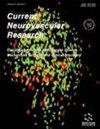Nomogram to Predict 90-Day All-Cause Mortality in Acute Ischemic Stroke Patients after Endovascular Thrombectomy
IF 1.7
4区 医学
Q3 CLINICAL NEUROLOGY
引用次数: 0
Abstract
Objective: Although Endovascular Thrombectomy (EVT) significantly improves the prognosis of Acute Ischemic Stroke (AIS) patients with large vessel occlusion, the mortality rate remains higher. This study aimed to construct and validate a nomogram for predicting 90-day all-cause mortality in AIS patients with large vessel occlusion and who have undergone EVT. Methods: AIS patients with large vessel occlusion in the anterior circulation who underwent EVT from May 2017 to December 2022 were included. 430 patients were randomly split into a training group (N=302) and a test group (N=128) for the construction and validation of our nomogram. In the training group, multivariate logistic regression analysis was performed to determine the predictors of 90-day all-cause mortality. The C-index, calibration plots, and decision curve analysis were applied to evaluate the nomogram performance. Results: Multivariate logistic regression analysis revealed neurological deterioration during hospitalization, age, baseline National Institutes of Health Stroke Scale (NIHSS) score, occlusive vessel location, malignant brain edema, and Neutrophil-to-lymphocyte Ratio (NLR) as the independent predictors of 90-day all-cause mortality (all p ≤ 0.039). The C-index of the training and test groups was 0.891 (95%CI 0.848-0.934) and 0.916 (95% CI: 0.865-0.937), respectively, showing the nomogram to be well distinguished. The Hosmer-Lemeshow goodness-of-fit test revealed the p-values for both the internal and external verification datasets to be greater than 0.5. Conclusion: Our nomogram has incorporated relevant clinical and imaging features, including neurological deterioration, age, baseline NIHSS score, occlusive vessel location, malignant brain edema, and NLR ratio, to provide an accurate and reliable prediction of 90-day all-cause mortality in AIS patients undergoing EVT.预测急性缺血性脑卒中患者血管内血栓切除术后 90 天全因死亡率的提名图
目的:虽然血管内血栓切除术(EVT)能明显改善大血管闭塞的急性缺血性卒中(AIS)患者的预后,但死亡率仍然较高。本研究旨在构建并验证一个提名图,用于预测接受过 EVT 的大血管闭塞急性缺血性卒中 (AIS) 患者的 90 天全因死亡率。方法:纳入2017年5月至2022年12月期间接受EVT的前循环大血管闭塞的AIS患者。430 名患者被随机分为训练组(N=302)和测试组(N=128),用于构建和验证我们的提名图。在训练组中,我们进行了多变量逻辑回归分析,以确定 90 天全因死亡率的预测因素。应用 C 指数、校准图和决策曲线分析来评估提名图的性能。结果多变量逻辑回归分析显示,住院期间神经功能恶化、年龄、美国国立卫生研究院卒中量表(NIHSS)基线评分、闭塞血管位置、恶性脑水肿和中性粒细胞与淋巴细胞比值(NLR)是 90 天全因死亡率的独立预测因素(所有 p 均小于 0.039)。训练组和测试组的 C 指数分别为 0.891(95%CI 0.848-0.934)和 0.916(95%CI:0.865-0.937),表明提名图具有良好的区分度。Hosmer-Lemeshow 拟合优度检验显示,内部和外部验证数据集的 p 值均大于 0.5。结论我们的提名图结合了相关的临床和影像学特征,包括神经功能恶化、年龄、基线 NIHSS 评分、闭塞血管位置、恶性脑水肿和 NLR 比值,能准确可靠地预测接受 EVT 的 AIS 患者的 90 天全因死亡率。
本文章由计算机程序翻译,如有差异,请以英文原文为准。
求助全文
约1分钟内获得全文
求助全文
来源期刊

Current neurovascular research
医学-临床神经学
CiteScore
3.80
自引率
9.50%
发文量
54
审稿时长
3 months
期刊介绍:
Current Neurovascular Research provides a cross platform for the publication of scientifically rigorous research that addresses disease mechanisms of both neuronal and vascular origins in neuroscience. The journal serves as an international forum publishing novel and original work as well as timely neuroscience research articles, full-length/mini reviews in the disciplines of cell developmental disorders, plasticity, and degeneration that bridges the gap between basic science research and clinical discovery. Current Neurovascular Research emphasizes the elucidation of disease mechanisms, both cellular and molecular, which can impact the development of unique therapeutic strategies for neuronal and vascular disorders.
 求助内容:
求助内容: 应助结果提醒方式:
应助结果提醒方式:


